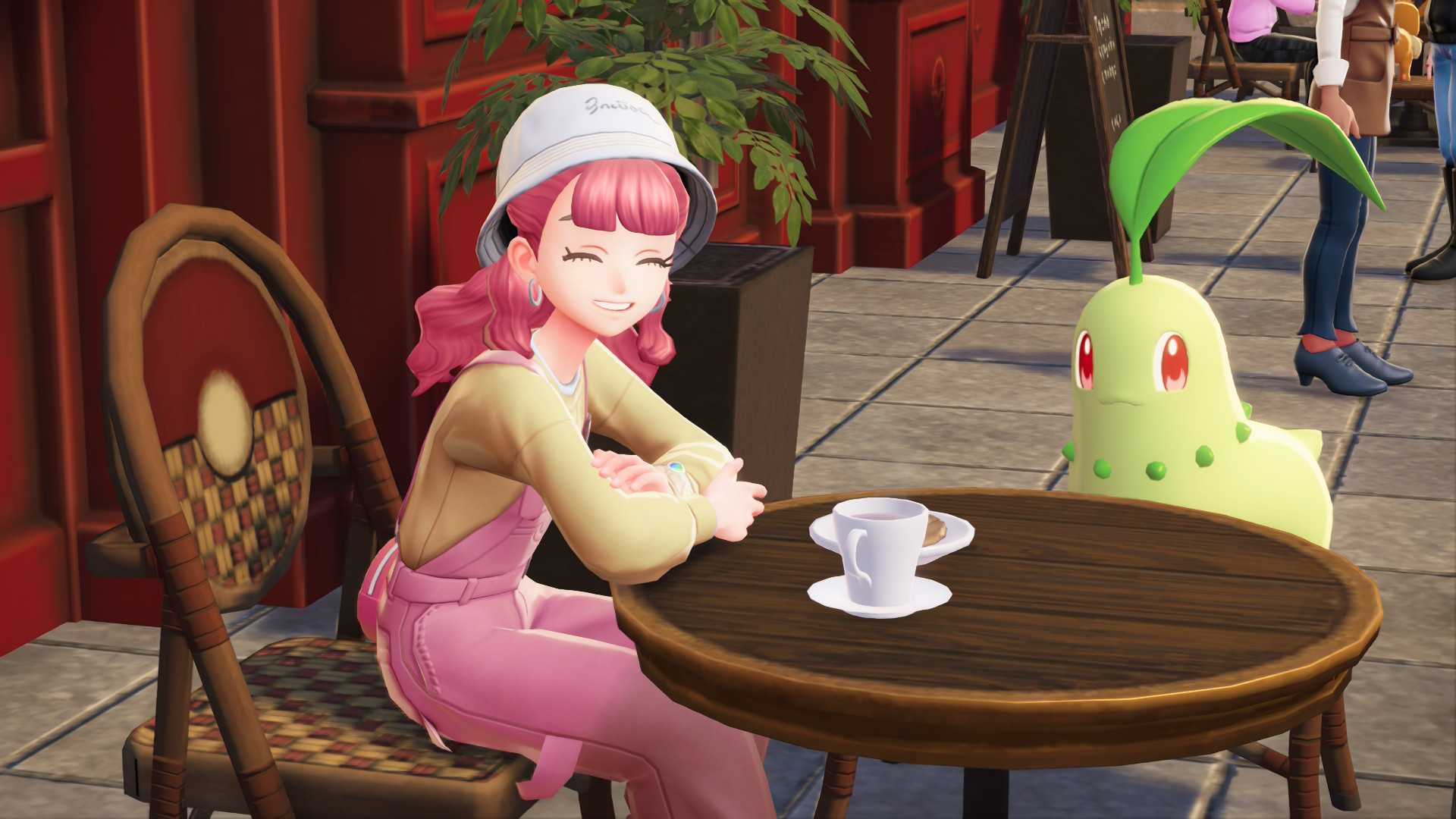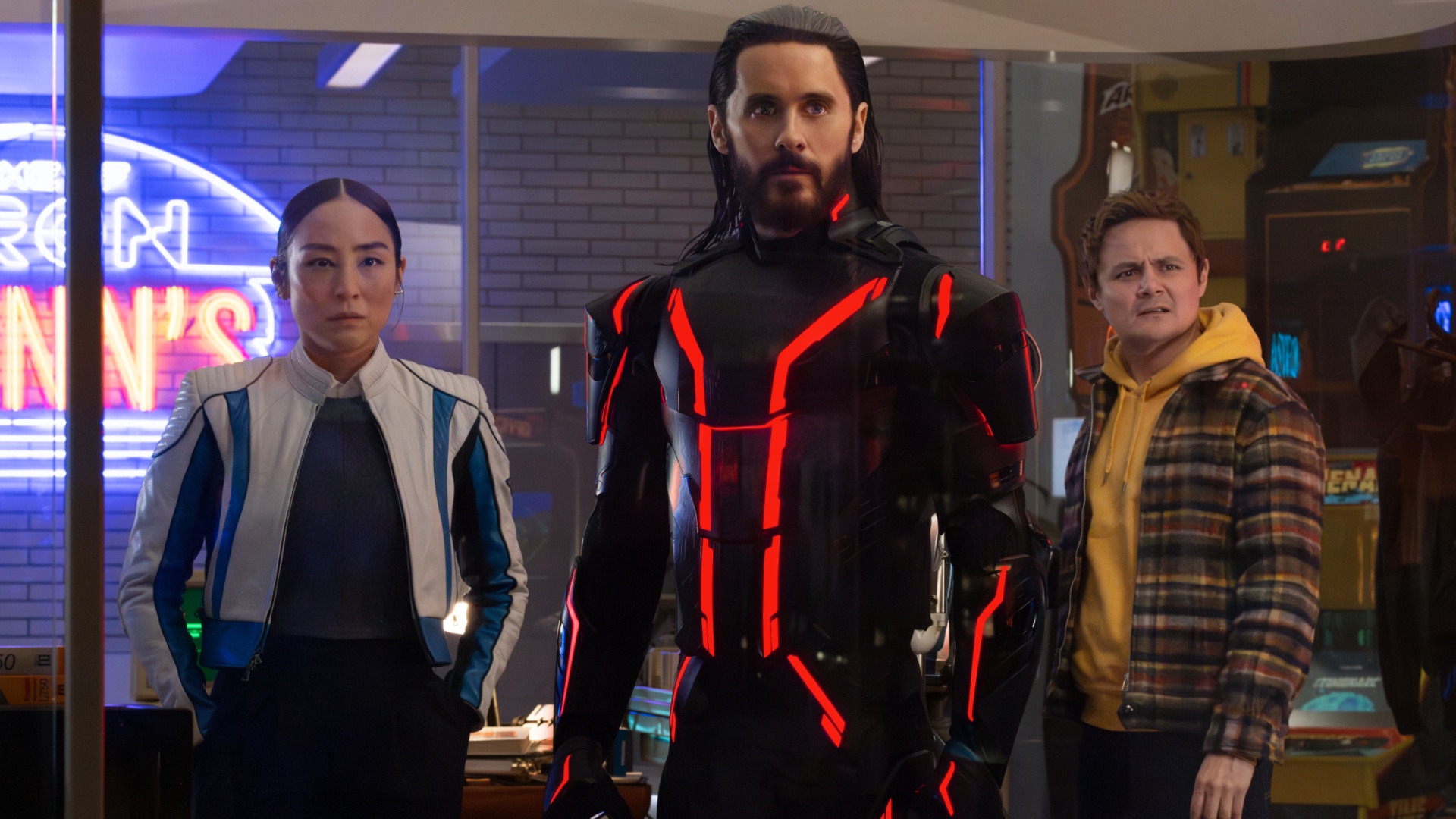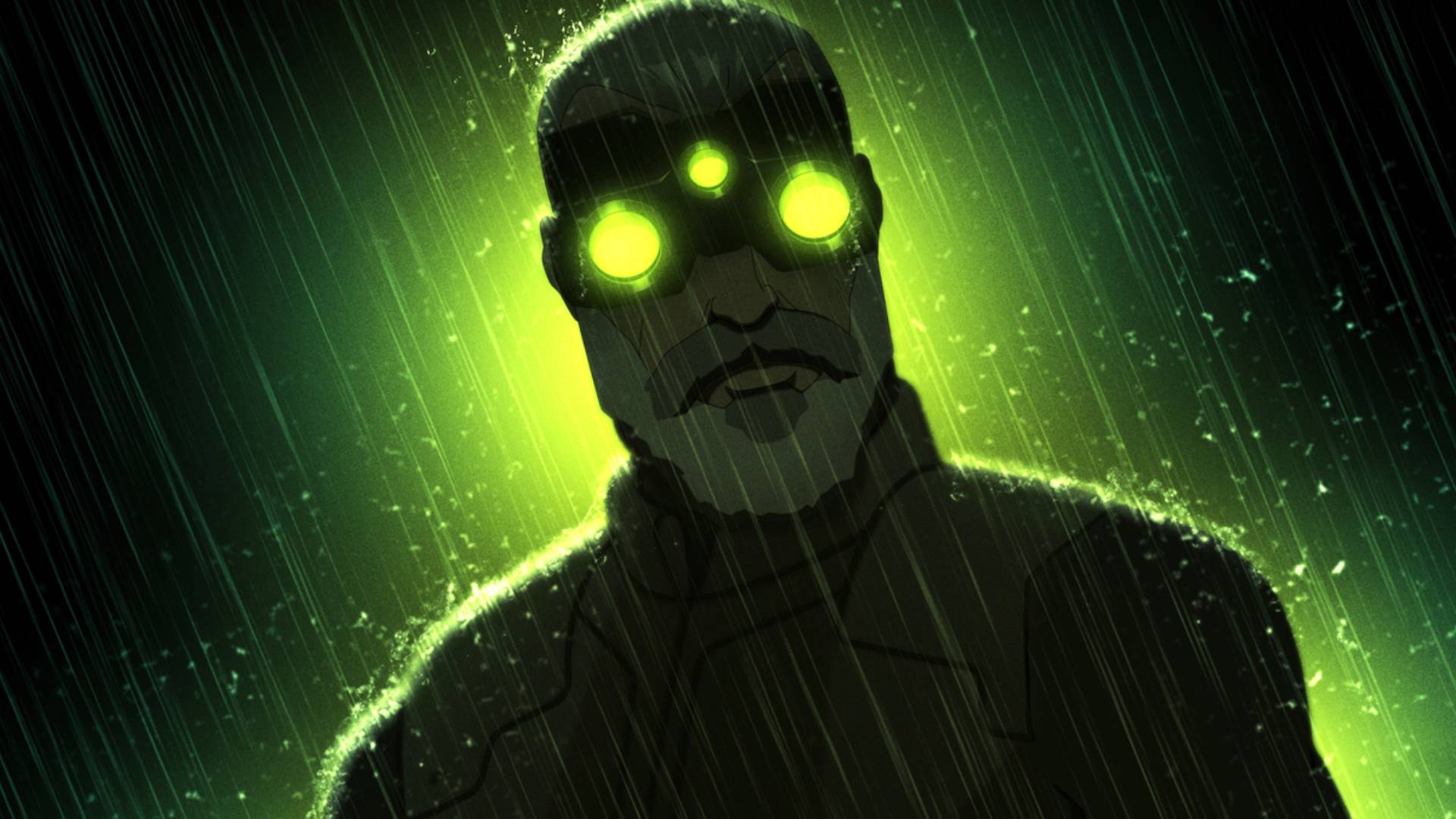The Total Film Interview - Christina Ricci
A veteran of almost 40 films at the ripe old age of 27, Christina Ricci talks sex, work and therapy. And why she believes the role of Rae in Black Snake Moan has changed her forever…
You didn’t go to school with a Christina Ricci. You may have known an Anne Hathaway type, all sunshine smile and inviting warmth; you might have worshipped from afar a hard-bodied Jessica. But a Ricci? Only in Hollywood. Smart-mouthed by 10, presenting Oscars in her teens, independent before she could legally drink. Reinventing herself with each passing year: the precocious child who scowled like a grown up; the almost obscenely ripened Lolita; the waif-like starlet with tattoos inked on her breast, her back, her leg, her ankle, her hip, her ribcage and her wrist (a typically macabre Edward Gorey illustration that peeks out from her sleeve when she gesticulates).
Today, in an LA eatery so authentically Italian you know Tony Soprano would approve of the calzones, she takes a while to relax but, when she does, a planned brisk lunch turns into a chatty afternoon.
Tiny and fresh-faced, without a trace of make up but dressed expensively casual, in designer jeans, a striped top and silk scarf, her hair is lopsided like she cut it herself (which, actually, she did... possibly with shears). She is friendly, if measured, distractingly flitting between wide-eyed child and world-weary sophisticate depending on the inflection in her voice or how the light through the window catches her.
Infinitely more fun when the tape recorder is off, but even then with a leaning towards denser topics of conversation, she is never less than thoughtful, listens carefully to your point of view and occasionally even changes her own – but cutely, in a way that infers she’d already half agreed with what she previously opposed.
The fourth child of a fashion model mother and a psychiatrist father (he took primal scream sessions in the basement – you could hear the wails in the bedrooms upstairs) she was already an established actress by the time she became a child of divorce. Her early success on screen was aided by an ability to appear far wiser, or at least more cynical, than her years should have permitted. Her teen glories, particularly the run of acclaim that accompanied The Ice Storm, Buffalo ’66 and The Opposite Of Sex, were fuelled by her burgeoning screen sexuality while the career drift of her 20s probably says more about Hollywood’s inability to know what to do with her than any dimming of her talents.
She remains an actress of unparalleled possibility – one who could go practically anywhere given the right material. Or as Black Snake Moan suggests, even a half-decent facsimile; her performance as the traumatised, sexually aggressive Rae is a feral howl barely imaginable from any of her current contemporaries.
So, a sex-crazed, half-dressed Southern nymph then. It’s quite a provocative role, startling even...
Well, I don’t think Rae’s experiences of life are that far-fetched, or, unfortunately, that different from a lot of young women. For years I’ve worked with RAINN (the Rape, Abuse & Incest National Network) and that’s how victims of abuse can react when untreated. They become different versions of Rae. There’s always a sexual dysfunction that follows abuse – the woman is left suffering post-traumatic stress. When I read the script I thought she was such an honest depiction of what happens to so many women. I wanted to play her, protect her and make sure no more was taken from her.
Bringing all the latest movie news, features, and reviews to your inbox
Sexual abuse and post-traumatic stress. We’re off to a flyer...
[Laughs] I know! Sometimes I feel like, ‘Here comes Downer Debbie…’ but everyone’s like [adopts Valley Girl voice]: ‘Yay, Nymphomania! And chains! It’s hot in the South!’ And I’m like, ‘Here I come to tell you the truth of the horror of the situation’.
You wanted the role badly, didn’t you?
Yeah, I just felt really passionate about the subject matter and the issues. If ever there was a role that could point out the reason I’m an actress it was this one. I even told my therapist, if I didn’t get the part, I was going to quit because I would have no idea what it was that people in this industry wanted from me.
But the filmmakers actually didn’t want you for the part.
They didn’t even want to see me for it, to audition. I think they felt that I was physically not appropriate for it.
What – they didn’t think you looked like a nymphomaniac?
Let’s not use that word… [laughs]. It enrages me for some reason. I think they just didn’t feel I looked, well, Middle America enough. She’s described as having freckles and blond hair and I’m seen as having a very distinctive look – even though I think I look like every other Irish-Italian girl that you see but… whatever! [Laughs]
How did you change their minds?
One of the great things about living in LA is that you run into people all the time. One of the producers saw me in a restaurant and told [writer and director of Black Snake Moan] Craig Brewer that I didn’t really look how he thought I looked and that maybe he should consider auditioning me…
Even then, they weren’t sure though, were they?
Well, what happened – and this happens a lot when you audition – is you may focus on one emotion. I made the assumption that what they would want to see is someone actually having a nervous breakdown, so I focused on the emotion and pain of the character. And their response was, ‘Well, she wasn’t really that sexual’. I couldn’t believe it. I was like, ‘Jesus Christ! I just had three nervous breakdowns in there!’ [Laughs]. And it was surprising to me that they would think that because I’m so used to seeing press about me playing sexually aggressive women or what are described as slutty characters…
You thought you’d already ticked that box.
Right! I was like, ‘Really? I thought that was the last thing you would need to see from me’. So then my agent sent them all the magazine shoots I’d done that were really sexual. They do that. They keep reams of photographs so if someone says, ‘We need to see more innocence!’ they’ll send over pictures of me looking innocent or ‘interesting’ or whatever they’re looking for.
Despite your intentions though, the way the film is marketed means some people will see it as salacious.
Yeah, but I have no control over how anything I do is marketed.
Did it worry you – the difference between what you’re trying to achieve and how it might be perceived?
You can’t think about that when you’re doing something. You’re not fully committed to a role if you’re already wondering what people may think about it. It’s like having one foot out of the relationship. I have to respond to my passions but I’m not necessarily a good businesswoman. I don’t have the foresight that a lot of people describe having - that strategic ability to manage your career.
Still, it’s a strategy of sorts, isn’t it – deciding to focus on perhaps quality of work rather than what’s ‘best’ career-wise?
Yeah, although I never actually thought that I had made that decision until I made Black Snake Moan. But my experience making that movie, playing a role I felt so passionately about… I don’t think I’ve ever had a role before that I loved so much. I’ve never gone so far as I went with this, in terms of transformation. I was so free because I felt I was finally really delving into the depths of my ability and losing myself. Which is one of the great things about acting – hiding in plain sight. And it was such a gratifying experience that now – although I know it won’t be easy to do – I’ve made the choice to only do movies that speak to me.
As opposed to...
Well, before I think I had my foot half-way out of that commitment. I never wanted to call myself an artist. I come from this adoration of blue collar working class America where being an artist is so bourgeois and, well, intolerable. So I never wanted to call myself that but now, finally, I’m like, ‘It’s okay. You can be that.’ I think my work in the future will benefit because you’ll see less things that don’t make sense for me to do.
So, this is the start of a new era?
If I was ever to become, I dunno, a ‘movie star’, I’d want it to be because of my particular kind of acting, not because I’ve changed myself to become what I think people want me to be. Because that’s not where my talent lies. And there’s nothing actually wrong with me – people should like me how I am! So, yes, now, I’m not going to try and change my tastes, or how I look, or anything.
Does age play a part in a decision like that?
Yes, I think it is a growing up thing. And it’s exciting! [Laughs] It’s actually such a relief when you’re finally like, ‘You know what? I’m going to sell myself. But I’m going to sell what I really am and I’m going to do over and over again what I love.’ Just by that passion alone, people should be attracted to the work and it should be good and stand by its own merits.
But you need decent directors and material for that. How often do you encounter people or material of the calibre you want?
Not very often… but often enough. I have a smart team that work with me and I’m pretty savvy about getting movies made. Not necessarily within the studio system, and not for $10 million, but maybe for four. And if you make good movies, people will watch them. Instead of what happens a lot I feel, which is making movies that are just trying to second-guess what people want.
So, does Black Snake Moan give you what you want?
In some ways. It’s interesting that the marketing approach they’ve taken is aimed at young boys but the people who have had the best response to the movie are women. I wanted them to be able to recognise the town slut and how they got that way. And to see that there is hope and even if you’ve had a bad experience, you can resolve it, even years later.
That sounds a tad like therapy-speak.
Well, I’m a huge advocate of therapy at any age, if anything traumatic has ever happened to you. I know it sounds sort of twee and half the time I want to vomit as I say it, but I really do want to touch people with this movie. Women have been exploited for so long that we’re now regurgitating it and exploiting ourselves. That’s half of what the outfits in the film are about – reflecting exploitative images that a young girl would have taken and is then presenting.
Maybe that’s a theme for people who are looking for it...
Yes. I feel there’s the concept movie that’s daring and people can tap into that and then there’s the movie Sam and I made, which is this emotional two-header about broken people healing each other. It’s kinda funny [laughs] – two movies in one!
On set, you stayed in character, frequently wandering around half-naked. Just out of curiosity, how long does it take for a male crew to stop gawking?
Like… two days.
Really?
Yeah, they got really used to seeing me like that. To the point where they weren’t interested.
If you pour yourself so completely into a role, what happens when filming ends?
It’s a painful extraction [laughs]. And one I still haven’t learned how to do very well yet. The transforming into a role, fine. The coming out of it, not so much. All of a sudden you’re rocketed back into your own personality. Like, for me, I was suddenly horribly embarrassed at being naked for so long. I don’t know how to describe it.
Maybe it’s like waking up hungover and getting flashbacks to what you did the night before?
Exactly! [Laughs] But although it’s exhausting it’s also gratifying. It’s like an athlete pushing themself. If I don’t get to ‘exercise’ in that way, it feels awful. But because I have this outlet to be extreme and exposed, in real life I’m actually calm and even-tempered. [Laughs] For the most part…
Although earlier in your career, you did appear to go out of your way to be seen as edgy or even confrontational.
Well, when I was a teenager I was confrontational because I was very uncomfortable with questions about my body... or anything really! So I’d find ways to almost verbally lash out and distract away from who I was because I couldn’t take the scrutiny. You know, you throw out a provocative statement to hide behind.
So it was a defence mechanism.
Yeah but I don’t act like that any more. I mean, I’m mortified by some of the things I said in old interviews but the only way I can get over that embarrassment is to point out, ‘Well, what did you expect. I was 17…’ I’m an intelligent girl who was put in an awkward situation and, when you’re smart enough to be able to picture every way you might fail, every perception people might have of you, you begin to freak out.
Unlike a lot of child actors, you didn’t take a break in your teens to, you know, go to college or something.
I had to work. I didn’t have any money! I’ve been independent from a young age and I had no other way of supporting myself. I certainly wasn’t going to get a scholarship to Columbia or something as an actress. No one believes you don’t have any money. And, to be honest, I used to get such positive reinforcement on sets, such encouragement, that acting was a relief and an escape. I’m not sure I could have dealt with four years without it.
You did have a period of great acclaim, particularly with that run of The Ice Storm, Buffalo ’66 and The Opposite Of Sex.
Yes, although I didn’t really know what I was doing. Buffalo ’66 was strange. Vincent Gallo would shout at me and I didn’t know what to think: was he being ‘method’ or was he just crazy? And I was really surprised that my character in The Opposite Of Sex was perceived as a bitch when to me it was clear she was in a lot of pain. But The Ice Storm was fun. That was the first part I ever really wanted that I got.
And now you’re going to stick to only roles you really want.
I have to say that being an idealist is a brand new thing for me! [Laughs] I was always, ‘This is a job’ and so I have to go and whore myself out. ‘People gotta eat.’ That was my attitude. But, even when actors don’t make a lot of money on an independent film, it’s still a pretty good amount! So I’ve just made my life smaller. I can live on less.
So this film has kind of changed your life.
Well, I think it made me value myself in a way that I didn’t before. I realised how good I was. [Laughs] I know how arrogant that’s going to sound. But now I won’t devalue what I can do by doing junk. It’s sort of like dating. You don’t want to give up too much, too cheaply!
How does that attitude inform your day to day dealings?
It means now I won’t prostrate myself in front of people who don’t deserve to have me read for them, for parts I don’t really want to do. It’s like anything in life where you have to learn to be your own best friend in a way. Sorry, I know that sounds self-helpy! But it’s like the way some women can’t live without a boyfriend so they’ll take anyone. But when they finally realise they are enough for themselves, then they start dating quality men.
Okay...
[Laughs] That’s the easiest metaphor I can make. Please don’t make me sound too embarrassing!
The Total Film team are made up of the finest minds in all of film journalism. They are: Editor Jane Crowther, Deputy Editor Matt Maytum, Reviews Ed Matthew Leyland, News Editor Jordan Farley, and Online Editor Emily Murray. Expect exclusive news, reviews, features, and more from the team behind the smarter movie magazine.


